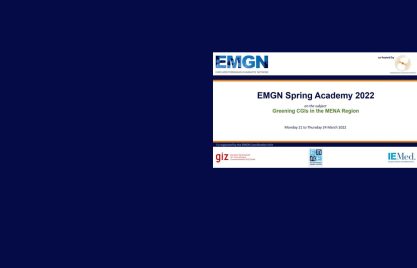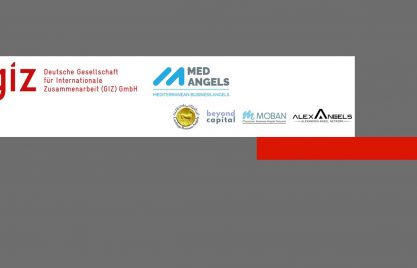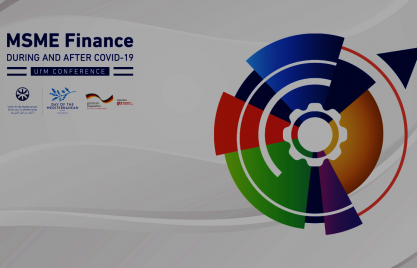The Arab Monetary Fund (AMF), GIZ, and the Alliance for Financial Inclusion (AFI) launched the Financial Inclusion for the Arab Region Initiative (FIARI) on 14 September 2017, during the AFI Global Policy Forum held in Sharm El Sheikh, Egypt.
The policymakers in Arab countries have recognized financial inclusion as a key driver that stimulates inclusive growth and employment, promotes social well-being, reduces socio-economic inequalities, and contributes to financial stability. Greater access to and use of formal financial services would empower almost 71% of adults (78% of women) and the 4 out of 5 businesses in the Arab world who are financially excluded. Empowering these unbanked and under-served segments enables them to contribute to and benefit from achievements of sustainable development goals.
FIARI aims to accelerate conducive policies and actions for enhancing access to financial services in Arab countries. The new regional initiative will build on financial inclusion as a driver for sustainable economic and social development aligned with the UN SDGs. It will provide a regional platform – of global relevance – for enhanced donor coordination, capacity building and knowledge exchange on good practices through peer-learning and support national financial inclusion policies.
FIARI was launched during the 9th AFI Global Policy Forum in the presence of President of Egypt. Resembling the diversity of the Arab world, the forum took place under the theme “Exploring Diversity, Promoting Inclusion” and in the spirit of sharing knowledge and wisdom. Ms. Ute Klamert, GIZ signatory behind establishing FIARI with AMF and AFI, stated: “As we show the will to join forces under FIARI and foster knowledge, we reinforce our commitment to financial inclusion and thus to addressing some of the region’s most urgent challenges such as youth unemployment and women’s economic exclusion.”
In recent years, the Arab world has witnessed an increased momentum in policy dialogue and national initiatives for financial inclusion. The AMF has fostered knowledge exchange among its 22 member countries. Six financial policymaking institutions from the region have joined the global AFI network. GIZ is cooperating with the governments of the Palestinian Territories, Jordan, Egypt, Tunisia and Morocco on more inclusive financial systems.
While complementing the regional AFI initiatives for Africa (AfPI), Latin America and the Caribbean (FILA), and the Pacific (PIRI), FIARI as an institutional innovation opens a new window of opportunity for Arab countries. First, each of the strategic partners, AFI, AMF and GIZ, has a lot to offer to accelerate financial inclusion in the region. Second, FIARI will empower the region to sustain the momentum created by other national and regional financial inclusion initiatives for evidence-based policymaking. Third, it enables Arab countries to systematically harness on an increasing scale of knowledge of more than 80 non-Arab member countries within the AFI network and on technical assistance experience of GIZ, without compromising the regional identity and culture.
To harness its full potential, FIARI must be made robust through an effective governance structure, a well-articulated mission, and carefully worked out priorities for the region. A strategy is needed to translate the priorities into concrete actions that would contribute to improving the lives of the poor people, women, unemployed youth, and refugees. That impact would be the acid test of success of FIARI in the medium to long-term.
We are optimistic that FIARI will face up to this challenge with confidence.
By Atilla Kaiser-Yuecel, Central Bank Advisor, and Dr. Nimal A. Fernando, Consultant, GIZ Jordan



